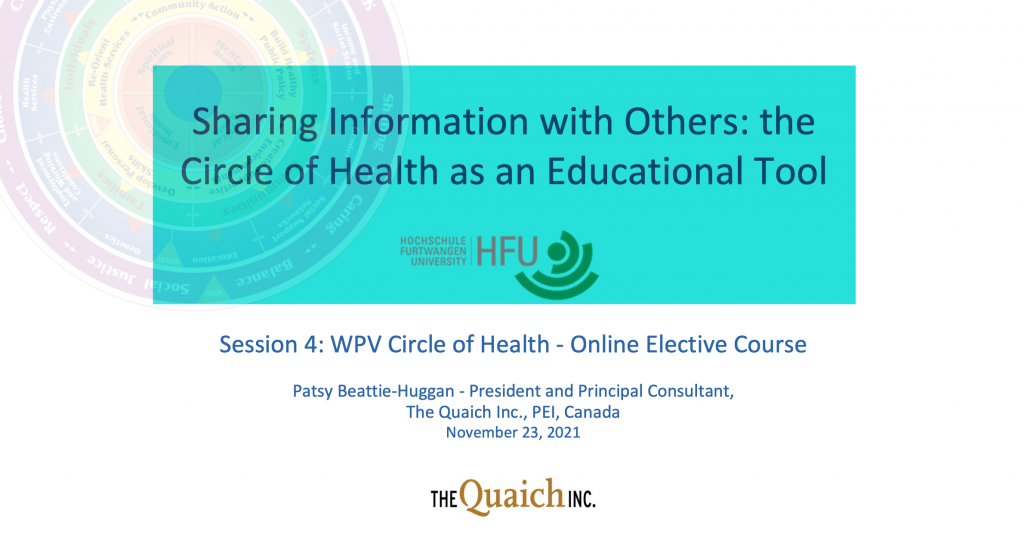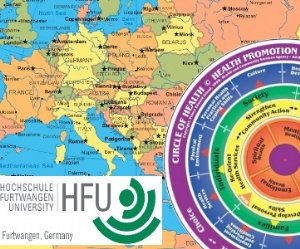Registration in the Circle of Health Online Workshop Series was quickly filled by 16 Health Science students from Furtwangen University, Germany. In 2018, the workshop series was adapted to serve as an elective credit course for that university and since then, it has been offered to 4 cohorts of students. The course offers a mix of new material and small group work with weekly assignments and a case study to synthesize material and apply it to a project which the students select.

Today’s session focuses on using the Circle of Health – an educational tool – and is the 4th class of the course. It will feature a presentation by Anne Götz, a recent graduate of Furtwangen University and a student of the course last year, sharing her experience of using the Circle of Health in her thesis entitled: Circle of Health – A tool to evaluate the cross-sectoral relation between Health Literacy and Menstrual Health.
To date the students have learned about the history of the Circle of Health, how it can be used in building partnerships and as a framework for planning. When asked what they learned that could be applied to their work, comments from the students include the following:
Partnerships
- Before planning strategies for Health issues, you have to consider the partnerships and the values are of your partner
- I learned what the important aspects are in building partnerships and as I’d like to work in an international context later, I think it can help building partnerships in that context
Planning
- I reflected on how programs meant for one target group (seniors) can affect whole communities (families, neighbourhoods, etc.). It’s good to keep that in mind when planning other programs. E.g.,: a program meant for troubled teens should also think about how it impacts parents, siblings, school communities.
- In our student project we could evaluate our strategy keeping in mind what we learned today. Especially reflecting how we planned our project.
- If you start a project, try not to think about the solutions first. Try to think about the needs.
- I think you have to deal with big societal problems for this, so the whole thing has its effect
The next workshop series will be offered in February, with registration now open! Last year we had registrants from 5 countries and 6 time zones with a mix of professional backgrounds with experience ranging from elementary school education, dentistry, nursing and politics. We look forward to have registrants who teach, practice or conduct research join us in February 2022.
Learn more and register here: WORKSHOP
